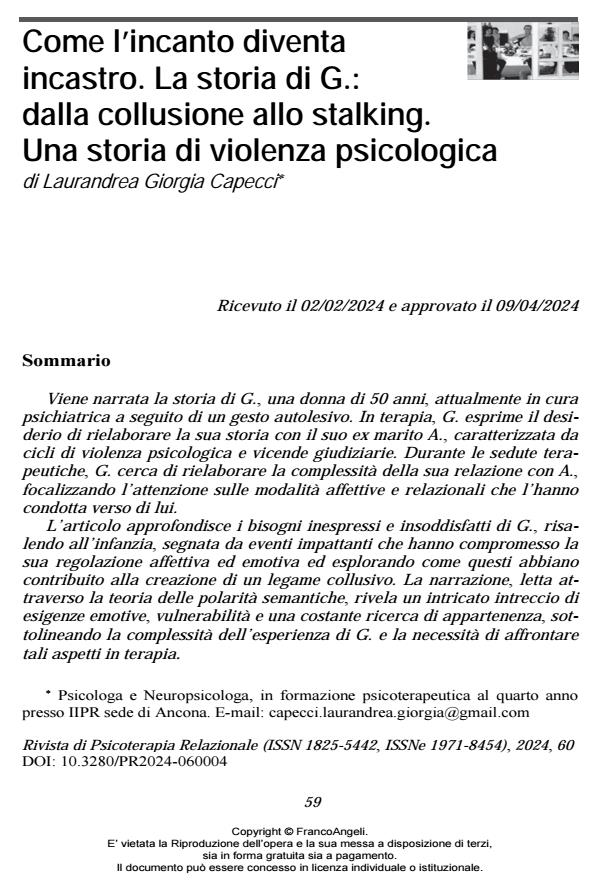How enchantment becomes entanglement. G’s story: from collusion to stalking. A tale of psychological violence
Journal title RIVISTA DI PSICOTERAPIA RELAZIONALE
Author/s Laurandrea Giorgia Capecci
Publishing Year 2025 Issue 2024/60
Language Italian Pages 17 P. 59-75 File size 236 KB
DOI 10.3280/PR2024-060004
DOI is like a bar code for intellectual property: to have more infomation
click here
Below, you can see the article first page
If you want to buy this article in PDF format, you can do it, following the instructions to buy download credits

FrancoAngeli is member of Publishers International Linking Association, Inc (PILA), a not-for-profit association which run the CrossRef service enabling links to and from online scholarly content.
The narrative recounts the story of G., a 50-year-old woman currently under psychiatric care due to a self-injurious act. In therapy, G. expresses the intent to reassess her relationship with her ex A., marked by cycles of psychological violence and legal entanglements. Throughout therapy sessions, G. tries to re-evaluate the complexities of her connection with A., specifically focusing on the emotional and relational dynamics that shaped it. The article delves into G.’s unexpressed and unmet needs, tracing them back to her childhood, marked by impactful events that disrupted her emotional and affective regulation. It examines how these elements contributed to the formation of a collusive bond. The narrative, interpreted through the Theory of Semantic Polarities, unravels a complex interplay of emotional needs, vulnerability, and an ongoing search for a sense of belonging. This highlights the intricate nature of G.’s experience and emphasizes the necessity of addressing these aspects within the therapeutic process.
Keywords: psychological violence, stalking, collusive bond, clinical case, therapy.
Laurandrea Giorgia Capecci, Come l’incanto diventa incastro. La storia di G.: dalla collusione allo stalking. Una storia di violenza psicologica in "RIVISTA DI PSICOTERAPIA RELAZIONALE " 60/2024, pp 59-75, DOI: 10.3280/PR2024-060004